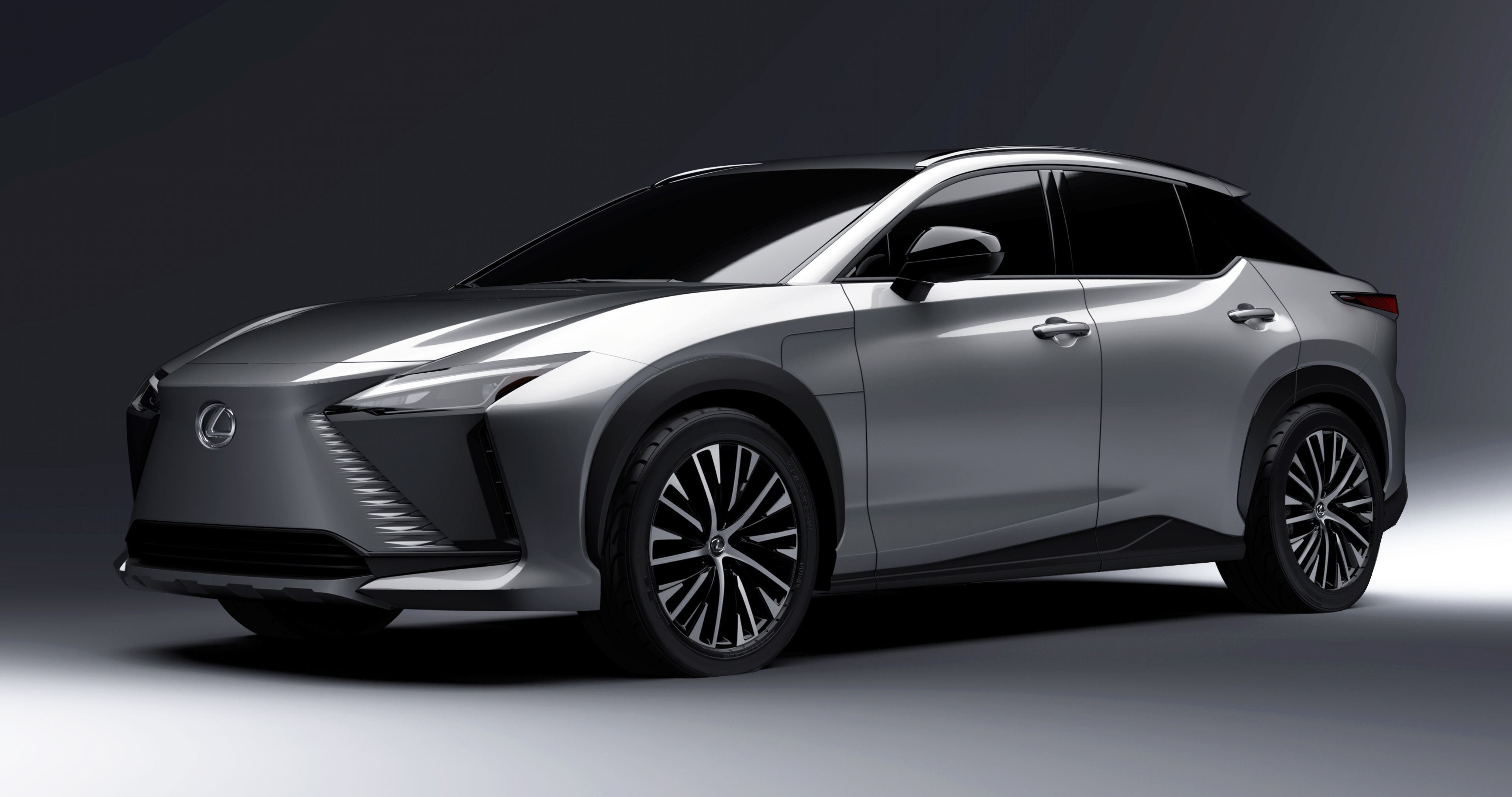Lexus goes electric: Toyota's luxury brand plans to launch 30 models by the end of the decade
Toyota is giving electric cars a run for their money and plans to launch 30 models by the end of the decade.
Lexus is leading the way with special vehicles, including a thoroughbred sports car and an SUV with pioneering steer-by-wire steering.
Toyota and electric mobility. It's an interesting story. First, the Japanese took the automotive industry by surprise with their Prius hybrid 25 years ago, only to have Tesla, VW and others take the cake when it came to the complete electrification of automobiles. There are good reasons for the Japanese' supposed hesitancy: Similar to BMW, they don't want to put all their eggs in the electric car basket too quickly, but want to give customers a choice. So CEO Akio Toyoda is far from throwing the combustion engine on the scrap heap and is also pushing ahead with hydrogen propulsion.
However, it is also clear to the Japanese managers that there is no way around fully electric mobility. By 2030, the Japanese want to launch 30 electric models on the market, and this electrification will cost them around 31 billion euros. The pioneer in electrification is Lexus, as the premium brand is to be largely fully electric by 2030.
"Lexus and Toyota are serious about electric models," clarifies Vinay Shahani Vice President of Lexus Marketing in the USA and also reveals an important reason for the EV offensive. "For us, the all-electric models are a way to attract customers from other brands." So now the electric cars are to establish Lexus in the circle of premium carmakers and thus achieve what the models with combustion engines have only succeeded in doing to a limited extent so far, at least in Germany.
An ambitious goal. After all, the Asian models were registered respectfully in Munich, Stuttgart and Ingolstadt, but never perceived as a real threat. The design was too unusual, and the technology too conservative. This is changing with the all-electric strike. The all-electric SUV Lexus RZ 450e will get steer-by-wire steering and thus a Formula 1-like steering wheel with two grip horns. Speaking of sport: the signs are good that after the SUV, the handsome sports car study Lexus Electrified Sport will become reality.
After all, the Japanese have presented the dynamic electric car at the Goodwood Festival of Speed and the Monterrey Car Week at two of the most important events of the year under the title "The Next Chapter of Lexus". Such a racer also fits into the one-car-must-be-fun diction of the group's CEO Akio Toyoda, which is still valid.
The fact that a clientele with purchasing power will be taking a close look at the cars at these two events only makes the realisation more likely. "I would like the Lexus Electrified Sport Concept to become the next LFA EV, the response to the study has been immense. Especially from young people," says Vinay Shahani. At least with the concept, the Japanese are not doing things by halves. The long "snout" and the crisp rear exude a classic sports car feeling, with the driver and co-pilot almost sitting on the rear axle. The driving performance is correspondingly good: thanks to the solid batteries, the prototype is supposed to complete the standard sprint from zero to 100 km/h in less than three seconds and cover around 700 kilometres.
Whether the production model will be equipped with these batteries is still written in the stars. It is still some time before the solid-state battery is ready for series production, and Toyota and Lexus are not under any pressure to act on the range. Toyota's e-TNGA electric platform, on which the premium subsidiary's electric cars are also based, enables ranges of up to 600 kilometres. To achieve this value, however, large and heavy batteries have to be packed into the underbody. This contradicts the idea of a sports car, but more powerful energy cells make the packages lighter and still manage an acceptable range.
In the next electric cars the Japanese have in their quiver, many drivers will find themselves. If the studies recently presented by group boss Akio Toyoda are to be believed, a classic sedan and a large SUV could complete the Lexus electric portfolio. Based on these cars, derivatives such as a convertible or a shooting-brake or estate are still conceivable. The architecture certainly allows for these vehicle variants, and considering the electric plans of parent company Toyota, smaller vehicles or a brute pick-up are also conceivable, but the strategy blade must be wielded with a fine hand to avoid cannibalisation.
As far as powertrains are concerned, the roles are clearly divided. Toyota is currently concentrating more on hydrogen than Lexus. That does not mean
